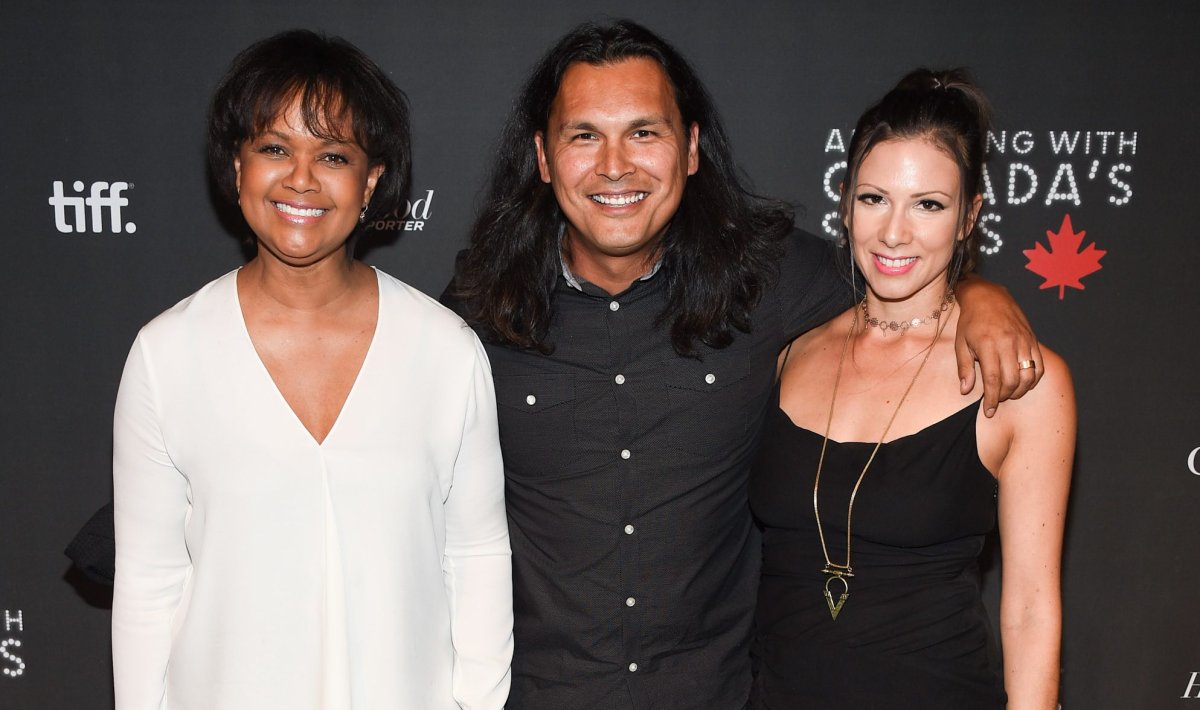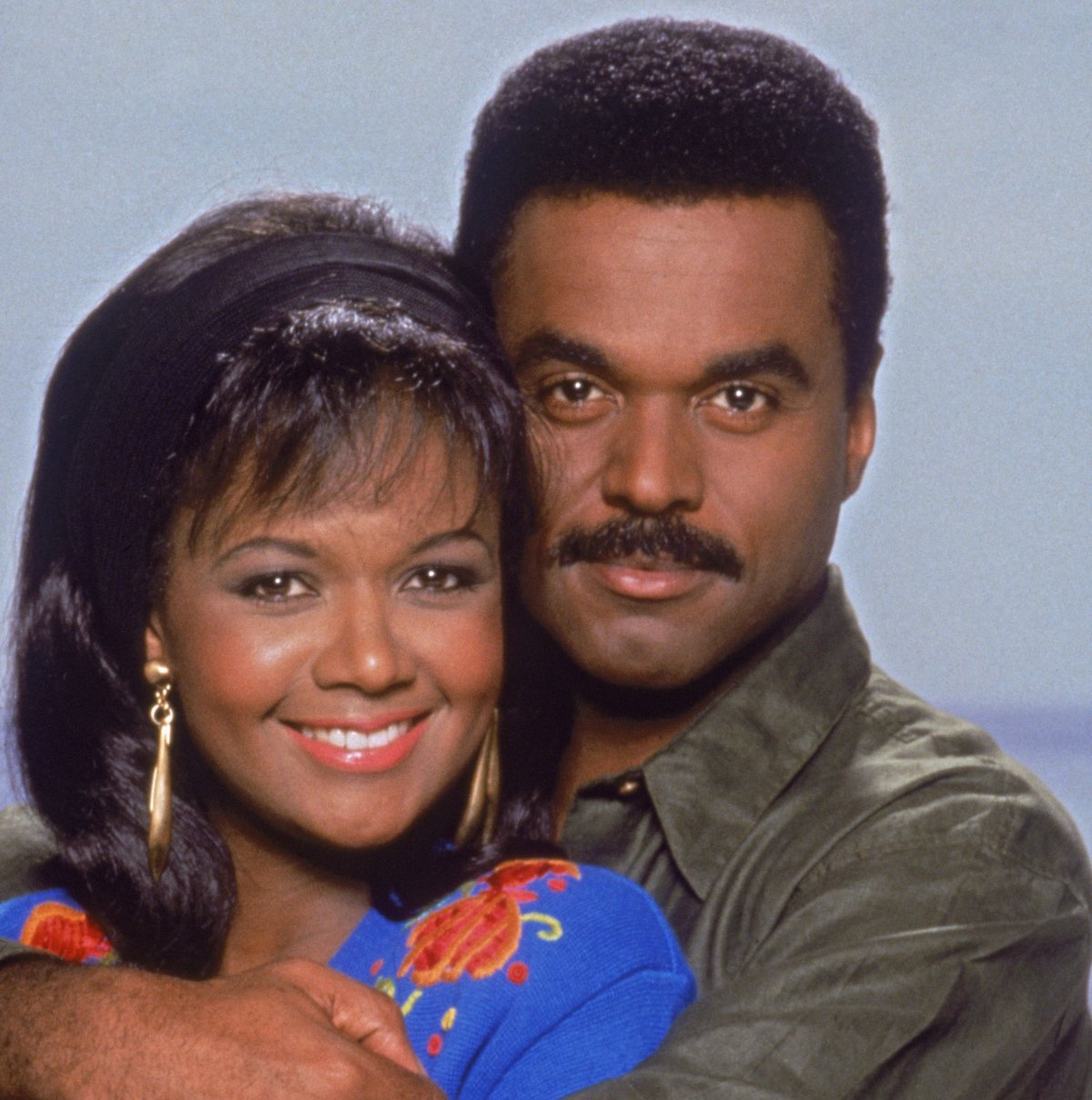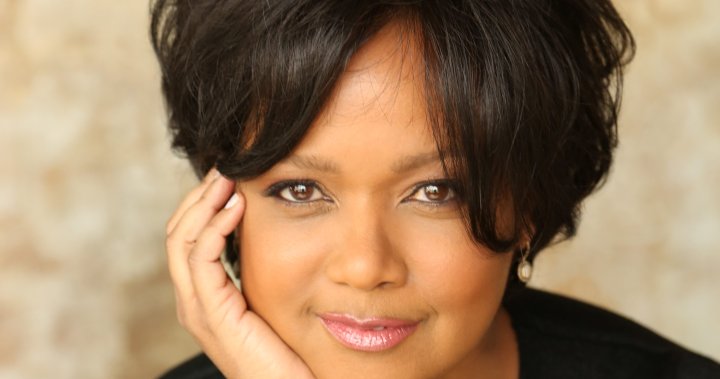Tonya Williams, perhaps best-known as fan-favourite Olivia Barber Winters on soap opera The Young and the Restless, has also been doing a lot of work behind the scenes, especially for young Black Canadians and Canadians of colour interested in working in the entertainment industry.
Williams, 62, has launched Access Reelworld, Canada’s largest national database dedicated to helping racially diverse professionals get hired.
Access Reelworld corresponds with Williams’ Reelworld Film Festival — inaugurated in 2001 — which has been a launching pad for Black, Indigenous, Asian, South Asian, Middle Eastern and Latinx Canadians.
The initiative is already being used by companies like Telefilm Canada, Canadian Media Fund and more in order to hire diverse talent, both in front of and behind the camera. It also aids productions aiming to meet the new Oscars diversity guidelines.
Global News interviewed Williams about Access Reelworld, how it’s helping Black, Indigenous and racialized Canadians and some of the immense struggles she faced as an up-and-coming Black actor.
Global News: Tell me a little more about Access Reelworld. How did it start up and how is this going to change the game for Black people, Indigenous people and other Canadians of colour?
We launched the Access Reelworld recruiting platform for Canadian Black, Indigenous and people of colour in the screen and creatives industries on July 6, 2020 to overwhelming success. Within a few weeks, we had almost 1,000 people signed up in our 98 job categories, and broadcasters, production companies and the Canadian industry at large started immediately hiring from the database. It has been incredible. It really speaks to the times we’re in and the seriousness that our industry is taking the importance of inclusion and diversity in their hiring practices.
Access Reelworld is borne out of our sister not-for-profit Reelworld Film Festival and charity Reelworld Foundation, also known as Reelworld Screen Institute, both of which are now in their 20th year! While most of the industry is only now speaking about the importance of our racial diversity, Reelworld has been championing this cause for 20 years. Our very foundation is based on the belief that Canadian content can only compete on a world stage if we develop diverse talent.

The audience has changed and they are demanding to see themselves reflected on the screens, but more importantly we need to make change behind those screens. Many lucrative jobs are behind the scenes: on-set construction, catering, hair and makeup, costume, electric and lighting and so much more. At Reelworld we celebrate and focus on all aspects of the screen-based industry and how we can make it more inclusive for racially diverse individuals.
When I founded Reelworld, it was important to me that every aspect lead by example — our Board of Directors is more than 95 per cent Black, Indigenous and people of colour, and the staff are all Black, Indigenous and people of colour. I am saddened to see that many of the largest corporations and funding agencies for film and TV in Canada have little to no racial diversity on their board of directors, and when you look at the CEOs and executives in charge, you’ll be hard-pressed to see it there either. We still have a lot of unconscious bias we need to deal with.

Tonya Williams, Adam Beach and Summer Beach attend the 3rd Annual ‘An Evening With Canada’s Stars’ at the Four Seasons Hotel Los Angeles on February 25, 2016.
George Pimentel/WireImage
Many Hollywood organizations and initiatives claim to be increasing diversity and making it a priority. Is this enough? Also, is this happening fast enough? Where should Hollywood go from here?
Yes, Hollywood still has a long way to go, but let’s take a moment and applaud how far it’s come. Just 10 years ago, people thought that a Black-led or all-Black cast could never have had the biggest box-office film in the world. When we look at the Oscars we see the distance in years between Hattie McDaniel, Sidney Poitier to Halle Berry, significantly more Black talent have been nominated and won the most coveted award in the world.
The Academy continues to change the rules and regulations to force the much-needed change, and most importantly we now have Black people in serious power positions in the industry: Oprah Winfrey, Tyler Perry, Will Smith. Whereas in Canada, Black, Indigenous and people of colour in the entertainment industry have very little power at all. Where are those people in the top jobs of leadership? Yes, over the last few months they’ve been scrambling to create the proper optics – but why weren’t they doing that for the past 40 years? We need to make sure that it’s not all branding publicity they are seeking — we need to keep their feet to the fire and make sure that the change is real and lasting.
How is it possible that there is no Black TV station in Canada? We have two that are on paid subscriptions. Paid subscriptions is where the industry likes to keep those diverse voices that are pushing for those licences. The industry is not going to give it to us, so we are going to have to get it for ourselves. This is where Reelworld and Access Reelworld come in — we need to facilitate lasting change. Canada is dripping with talent. Let’s give these folks a platform already!

As someone who’s been in the business a long time, and as a Black woman, does it ever feel like lip service?
Quick answer: Yes. It always feels like lip service. I started in this industry as a teenager back in the late ’70s, and in every job I was usually the only Black person in front of or behind the camera. Since the early ’80s there has been an ongoing discussion about the lack of racial diversity on and behind our screens. People love to talk about it — they ponder the question over and over, “what can we do?” — they have roundtable after roundtable discussion, they do surveys, they do everything except make the change that is required.
There is also inequity in the funds that are distributed to diverse arts organizations and productions across Canada. Often those organizations and productions run by Black, Indigenous and people of colour are provided less funding, thereby setting them up to fail. Some people say I talk too much about the financial aspects of our industry and not enough about the artistic aspects, but I speak more about the financials because I feel there are enough people talking about the artistry. I didn’t create our industry, but I did learn its rules and play by them. If you’re not making films and TV shows that make money, then people will not give you more funding and they cancel your shows. Those are just the facts.
Racially diverse artists don’t have the luxury to only think about artistry, they have been put in a position where they have to prove themselves each and every day. They are not afforded the luxury of failure that others are – they have to succeed or they will be discarded.
What have been some roadblocks that you’ve personally faced in the industry? Have you witnessed colleagues/costars endure similar challenges?
It’s not easy being a woman in our industry. It is really not easy being a Black woman. For decades the negative stereotypes of Black women that the film and TV industry has perpetrated has made it challenging, so as a young Black woman in the industry I was painfully aware of the assumptions men might have. I was hypersensitive about putting myself in any kind of vulnerable position. I made sure that I was all business all the time. I also made conscious decisions about not taking certain roles. I didn’t go to auditions where the woman was a prostitute or drug addict, or if there was nudity. I wanted to inspire young Black women.
Even when I started Reelworld, I found that there were some staff who found it challenging working for a woman. Have I faced racism and gender disrimination? Of course I have. But I have a belief system, which says that the world does not want me, that no one wishes me to succeed, that the world is harsh, unfair and unsafe. Once that is acknowledged I get on with the work of achieving what I need to achieve. I don’t have any illusions or expectations that I’m owed anything, but by my own will, I can manifest anything.
The Young and the Restless is known for having one of the first Black storylines on a soap. Did you find that set to be particularly inclusive when you first got there, or was it something that grew over time?
I found that the actors, crew and production office made me feel very welcome. I was fortunate, the show didn’t just bring on one Black actor, they created an instant family bringing on five characters at the same time, so right from the get-go we were an important addition to the show and their storylines. The issues we actors had were more around the systemic racism that was at all studios at that time; for example there was no one in hair and makeup who knew how to do our hair or makeup.
That was not just Y&R. Black actors spoke about this at every studio. Back in the ’90s the unions were very reluctant to open their doors to diverse members. We had to buy our own wigs, and many times, our own makeup. They certainly didn’t encourage “natural” Black hair, but no shows did. I also saw that there were only white writers on the show. We knew we were paid less than the white actors, and for a long time the show didn’t want to acknowledge how popular the Black family was, but we knew. That is the power you need to create change. Once we knew how valuable we were, we made certain demands: We got Black hair and makeup people hired, we got some Black writers on the show, we got some racially diverse directors.

Tonya Williams and Randy Brooks in a press photo for ‘The Young and the Restless,’ circa 1993.
Archive Photos/Getty Images
Also the show and studio didn’t tell us at the time, but there was a lot of fan mail from racists angry that they had hired so many Black people on the show, but to [late] creator Bill Bell’s credit, he stood his ground. You have to remember, there had been a couple of Black characters on the show before us. There was an Aunt Mamie and a character called Cong… these names make me cringe to think of them… so the show needed to do something progressive to wash that away. The good news was that for every angry letter, the studio recognized very quickly that they were getting thousands more in a new Black audience, who became the buying power that sponsors loved. So they grew and expanded our presence on the show because it was lucrative for them to do so.
What is the soap environment like for a woman of colour, particularly a Black woman?
To the Black community worldwide we were superstars! When I started, the show was in 98 countries. In France, we were the only Black characters on television. In any country that we went that had the show, everyone stopped us and spoke with us. We were family to them. Because I was also Canadian and Jamaican, there was so much pride from the audiences from those countries.
I started on Y&R back in 1990 and left in 2009, so my experience might be different than it is now. I do feel I was really fortunate. The show immediately had all the Black characters front and centre and the main arc of many storylines. We were not relegated to the sidelines of stories. Through my years on the show I started out a doctor, got married, had a child. I was a professional Black woman balancing career and home life. That was ahead of its time back in 1990. At that time, there were almost no Black families on television that had characters that were so fully three dimensional as we were. They gave us amazing material to work with. We won a lot of awards. Our characters were the first to grace the covers of soap magazines. Everywhere we went Black people stopped us, filled with pride.
Our stories had a positive impact on communities. The Association of Black Women Physicians gave me an award, saying my portrayal of a doctor had increased Black women entering their profession by 400 per cent. Think about that for a second, think about the impact of seeing someone who looks like you changing the course of your very life by setting an example! Think about how many other roles need to be seen onscreen!
Recently I was being interviewed and the reporter, who is Black, said he watched the show as a child, and he noticed that the Black men on the show wore suits and ties and that their hands were clean. He had never seen Black men with clean hands like that, and he knew whatever he did in life, he wanted to wear a suit and have clean hands. Can you imagine the impact of an image like that to a young Black boy?
For people employed in the entertainment industry, what can a person do on an individual level to help increase diversity?
Movement can only happen if you actually do something. People often think they need to make huge broad sweeping policy changes — that’s good — but for the average person there are simple things that could create great change. Sit in your chair in the office where you work and look around you, what do you see? Is there any racial diversity there? Go on your company’s website, is there any racial diversity in the board of directors?
Speak up about that. Next time you need an assistant, hire someone Black, Indigenous or a person of colour — teach them, guide them, give them the opportunities you had, that they were denied. Post your job on sites where racially diverse people might see it. Also recognize that most of us have racial biases and try to keep those tendencies in check. Don’t assume you understand a ‘race’ or ‘culture’ if you’re not from it. Try and spend more time listening to others who live with the challenges every day, rather than talking about it. Use Access Reelworld. Actually go on it, and see the wealth of talent. Hire someone from it!

Actor Jo Jo Karume, Tonya Lee Williams, director Thyrone Tommy and actor Darius Fisher from the film ‘Avalanche’ attend the ReelWorld Film Festival 2015 Program Launch Reception on Feb. 19, 2015 in Toronto.
Isaiah Trickey/FilmMagic
What advice would you give a young Black person seeking a career in entertainment?
First of all, I’m a big believer in professional training. Do your time in school and study your craft. Do your homework. If someone comes up to you and wants to be your agent, it’s your responsibility to check and make sure they are legitimate — call the unions and other agencies and find out about them. If you have children, make sure you are always with them on auditions and jobs. Children are very vulnerable in our industry and too often parents just leave them with production assuming they will be taken care of.
The industry is changing fast. It’s not enough if you want to focus on being an actor, director, or writer. Those are luxuries that don’t exist anymore. You need to understand all of the entertainment industry and how your piece fits in. You need some basic working knowledge of development, production, post production, distribution, sales, and you have to strategize the much larger picture of the industry, or you’ll be sitting around waiting for others to save you. You may need to know how you build a “fund” and create a slate of programming. You might not need to use any of this knowledge, but it helps that you know about it.
You also need to be smart. Save your money and have a long-term goal. This is not an industry for the faint of heart — it’s hard and tough. Don’t be naive. Nothing in our industry is easy. Remember, nothing is free — you either pay now or pay later — and I believe that paying now is the easier way. Find your community, find resources that will lift your spirits, and give you courage to continue. Find communities like those that we’ve created at Reelworld.
Do you see any fundamental differences between the U.S and Canadian industries in terms of this issue?
Yes, definitely. In Hollywood, there is a culture that the entertainment industry is pure business. They often hire financiers off Wall Street to work as executives in the studios. They spend a lot of time and resources understanding their audience, and they build the entertainment around their audiences’ needs. They collect a lot of data and have endless departments at the studio level that calculate who is watching what and why. They also have a lot of infrastructure – talent is nurtured and guided by managers and agents. The larger agencies make sure there are racially diverse agents in place whose jobs are to seek out and sign talent that have potential.
Actors are key to the process in Hollywood. When they sign an actor, everyone works together: managers, agents, publicists, casting directors, the studios. They strategize how the film or TV series will be released to maximum effect. Currently in Canada we don’t have these resources in place. There are almost no Black, Indigenous or people of colour agents, managers or casting directors. We often don’t know what our audience likes or responds to. Actors are not treated with the respect they deserve – rarely are publicists hired to increase the visibility of the actor on a show.
In the U.S. they build a star system, not to feed egos but because they are playing the long game in Hollywood. Without a star system in Canada, especially for the Black, Indigenous or people of colour, we have no hope in our diverse producers ever being able to create shows that will find an international audience. The international audience will have no idea who those actors are. In most cases Canadians don’t know who they are. Most Canadian producers are forced to get their bankable “stars” from the USA, UK, somewhere else to be leads in their shows and films, so that they can access the much needed funding they need for their projects.
How can Canadians help your initiative?
Where do I start? Money, that’s a good place. Every initiative in Canada needs money from corporations and from the government in particular. The audience should realize their tax dollars help create the content they see. If they don’t like the content, tell Telefilm and the Canadian Media Fund what you want to see. These are the government arms of funding for film and television. If you don’t see yourself reflected on those screens, let them know you want that changed; after all, these are your tax dollars at use.
I would like every single Canadian Black, Indigenous, and person of colour who is in the screen industries to sign up on AccessReelworld.ca — fill out your profile so people can find and hire you. Be proactive. We want to end those assumptions that “the diverse talent” is just not out there. We know it’s out there, but decision makers and hiring managers need to find you.
I would love all the broadcasters and production companies to hire Black, Indigenous, and people of colour in your projects and in your companies. I would like every senior executive with power and authority to take a racially diverse person under their wing and champion them to success. The entertainment industry in Canada has not spent enough time grooming and cultivating the executive talent that is needed. We don’t want companies in a knee-jerk reaction to hire people in more senior jobs if they are not qualified. That will basically set someone up to fail. You have to create a long-term strategy for leadership. Creating a five-year plan that identifies internal staff with a pathway to executive jobs, shows me that a company is serious and not just paying lip service.
Let us also recognize the achievements of Black, Indigenous and people of colour in the industry on our Walk of Fame, Order of Canada and Governor General Awards. There are racialized Canadians who have won international awards who have not been recognized in their own country of Canada. These things are important. They say that we have contributed in a meaningful way. Many of those awards don’t have any diversity on their board of directors or on the juries who select the awardees.
And lastly let’s stop using the term BIPOC — it’s the lazy man’s way of addressing an issue that needs the respect to say it out in full – Black, Indigenous, people of colour – it reminds you that “one” hire does not diversity make. Often when Black people hear the term BIPOC they do not feel included. Often companies who need to choose someone BIPOC do not choose a Black person. We must remember that “race” is not the only issue, that “shadism” is the gift from colonial days that just keeps on giving. Many darker-skinned diverse people believe they are overlooked for fairer-skinned hires. When I hear things like that I know that we still have a long way to go.
—
This interview has been edited and condensed.
© 2020 Global News, a division of Corus Entertainment Inc.


